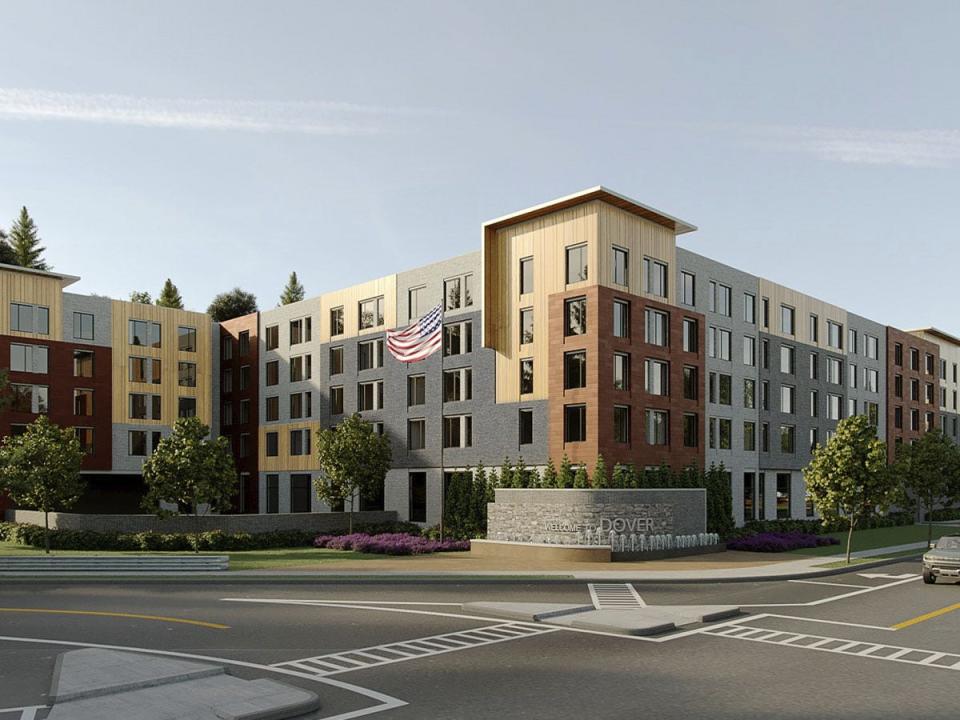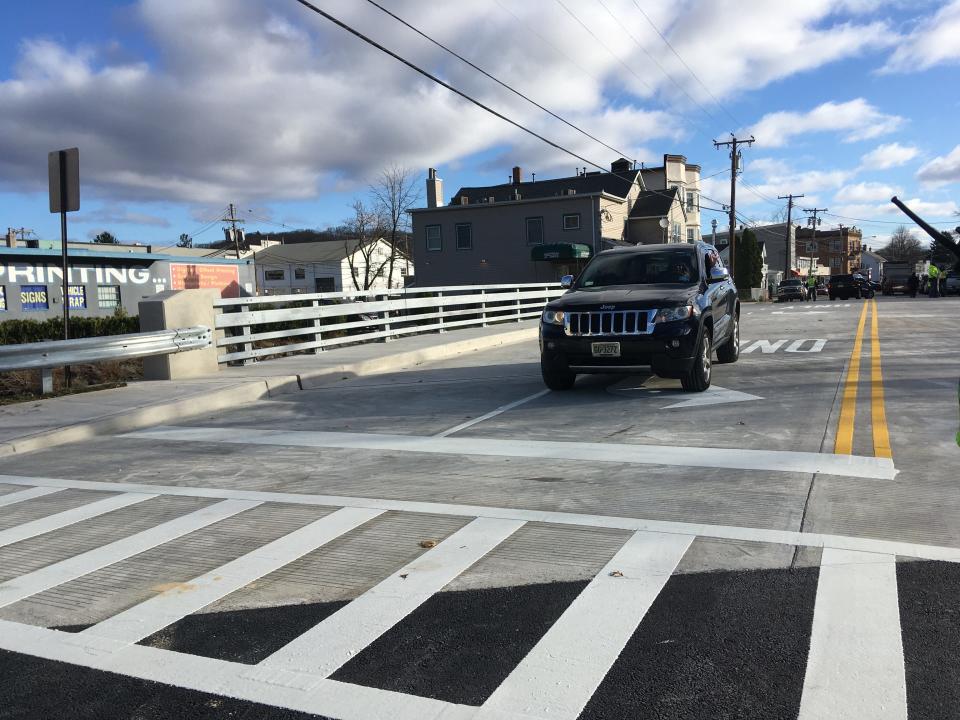'It's a massive building': Dover advances big housing project, but flood concerns remain
A long-discussed plan to build a residential development on two vacant commercial lots in Dover is nearing reality, despite concerns about its impact on a major intersection that's already prone to flooding.
Dover Mayor James Dodd, who also sits on the town planning board, said he hopes that developers will break ground by the summer on a five-story, 260-unit apartment project at the corner of East Blackwell and Salem Streets near the Rockaway River.
"This is a priority project for them," Dodd said Thursday. "They want to fast-track this."

First, Dodd says the developers will have to clear local, county and state hurdles, particularly dealing with the flooding that frequently makes the intersection impassible.
"I do have some concerns," the mayor said. "The footprint of the building is massive. It takes up the entire [2-acre] site. It would have been nice if there was a green, public park there, or a sponge park to absorb water."
Project includes 'water storage'
The planning board last week granted Iron Ore Properties LLC and Deugen Development LLC a preliminary approval, which enables them to continue site plan revisions requested by the town.
Among those requests is to increase the capacity of an underground water-storage component of the project that was already in the original blueprints.
Dodd explained the building, with four floors of apartments above first-floor parking, is designed for flood water to flow in and out of that ground level. Should the process work as designed, Dodd said it would "absolutely" improve flooding at the notoriously flood-prone intersection.

Representatives of the developers at the Jan. 18 planning board meeting said they would address the need for increased water storage in their final site plan application.
Dodd praised the developers for agreeing to work with him to add additional public-improvement components to the project that were not in the original development deal, which "is sealed," Dodd said.
"I was not part of the negotiations for that," he said, saying the deal was struck by the administration of his predecessor, former mayor Carolyn Blackman. "I would have done things a little differently if I had a seat at the table."
Wawa plans scuttled
The two combined properties, including a former Bear auto body shop and a car dealership, were once slated for a Wawa convenience store. But Dodd said environmental concerns about the property led to Wawa withdrawing its application prior to Blackman replacing him in office in 2020.
Under the current plan, the two buildings remaining on the property will be demolished.
"I believe this project will be a benefit to the community and the developers worked with us in good faith," the mayor added. "I'm going to work with them every way I can to bring this project to fruition."
Primed with a PILOT deal
Under Blackman, Dover in 2022 granted the developers a payment-in-lieu-of-taxes contract, known as a PILOT. The terms of the 30-year deal are similar to agreements awarded in other North Jersey towns, which are making increased use of the tax breaks as a way to encourage redevelopment of obsolete office buildings and blighted properties.
Instead of paying conventional property taxes, including school taxes, the PILOT for the East Blackwell project calls for the owners to pay an annual "service charge" of 10% of the development's gross revenue for the first 10 years. The service charge increases to 11% for years 11 to 20 and 12% for years 21 to 30.
Critics of PILOT programs, including 800 Parsippany residents who packed a Dec. 28 council meeting to protest agreements there, often complain that the deals cut school districts out of the process. But districts generally receive their full revenue from the municipality after submitting an approved budget.
"I think PILOTs are the only way do development now," Dodd said. "There has to be a benefit for the municipality and the developer as well. It has to be a win-win for both."
William Westhoven is a local reporter for DailyRecord.com. For unlimited access to the most important news from your local community, please subscribe or activate your digital account today.
Email: wwesthoven@dailyrecord.com
Twitter: @wwesthoven
This article originally appeared on Morristown Daily Record: Dover NJ advances 'massive' housing plan at flood-prone intersection

